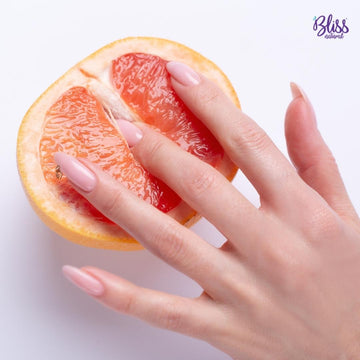Vaginal bleeding is something we all experience at least once a month unless you haven’t had your period yet or have reached the age of menopause. However, if you’re experiencing vaginal bleeding while you’re not on your period, you should be concerned.
Vaginal bleeding can occur as a result of intercourse, and discussing it might be uncomfortable. At Bliss Natural, we tackle the tough topics so you may better understand your body and make informed health decisions.
WHY DO PEOPLE BLEED AFTER SEX?
It’s not unheard of to bleed after a sexual encounter, especially if it’s a really intense one. Any vaginal bleeding that isn’t related to your period, on the other hand, should be taken seriously.
Here are five reasons why you might be bleeding after a sexual encounter.
1. THIS IS THE FIRST TIME FOR YOU
It can be amazing the first time, but it’s generally a little weird. No one can truly prepare you for what you will encounter, and each experience is unique. One issue, though, is rather common: vaginal bleeding.
A tiny patch of skin called the hymen partially covers your vaginal opening. Although other activities (such as sports, injuries, and even tampon use) might cause your hymen to rip, it usually tears the first time you have penetrative intercourse.
Vaginal bleeding is caused by hymen ripping, which can happen right after you have sex for the first time or a day or two later.
This will most likely come as spots and will last barely a day or two.
2. YOU’RE IN THE MIDDLE OF YOUR PERIOD
When you’re on your period, you may suffer bleeding after you’ve had intercourse.This is sometimes startling, especially if you don’t keep track of your monthly cycle.
You can have sex and start your period at the same time, resulting in vaginal bleeding.
If you’re already on your period, having sex could cause any blood in your vagina to leak out, resulting in vaginal bleeding both during and after intercourse.
3. DRYNESS IN THE VAGINAL AREA
Vaginal dryness affects over 20% of women between the ages of 18 and 50 at some point in their lives. That indicates that’s really common, and you shouldn’t be afraid to discuss it with your partner or doctor.
Vaginal dryness can make sex unpleasant and result in post-sex bleeding. If vaginal dryness is the cause, you may experience the following symptoms:
- Inability to produce enough lubricant to make intercourse pleasurable
- Discomfort during sex, regardless of your position
- After intercourse, vaginal bleeding
You can develop discomfort and sensitivity inside your vagina and vulva if you have vaginal dryness, which can lead to bleeding during and after sex. The bliss panty liner is similar to sanitary pads, however it is smaller and thinner. It’s a feminine hygiene pad that women wear in their pants like a sanitary napkin to absorb any vaginal discharge and light flow of menstrual blood.
4. INFECTIONS OF THE VAGINAL SYSTEM
It’s easy to develop a vaginal infection without realising it. Although most vaginal infections have apparent (and unwelcome) side effects such as burning, stinging, and discharge, you can have an infection that causes bleeding without you realising it.
Cervical and vaginal infections are caused by sexually transmitted diseases (STDs)., or they might arise as a result of vaginal microbiota imbalances.
The vaginal microbiome refers to all of the beneficial bacteria that live inside and on your vulva. This bacterium protects you from yeast infections and bacterial vaginosis by maintaining the pH balance in your vaginal area.
You risk developing an infection if your vaginal microbiome becomes imbalanced, which could lead to vaginal bleeding after sex.
Some of the factors that raise your chances of contracting an illness are as follows:
- Using douches
- Wearing tight, damp clothing (like gym clothes) too long
- Not changing your tampons or pads properly
Symptoms of a vaginal infection include odd discharge, an unpleasant odour, burning, itching, and irritation around the vulva, as well as pain during intercourse.
5. PROBLEMS WITH THE CERVICAL SYSTEM
It’s a rare occurrence, but bleeding after sexual intercourse can indicate a deeper, more serious problem with your cervix. You may not realise you have a cervical problem until you have intercourse and see bleeding.
Cervical issues that can cause vaginal bleeding include:
Cervical ectropion is a disorder in which the cells that line your cervix harden and become rigid, making intercourse unpleasant and causing bleeding.
Polyps in the cervix. Your cervix can develop benign growths that your doctor may or may not need to remove. Because of hormonal changes, these tumours can cause vaginal bleeding.
Cervical cancer is a form of cancer that predominantly affects women.. Vaginal bleeding after intercourse is a rare sign of cervical cancer, but it is often the initial indication of the disease. Cervical cancer is treatable, and can occasionally be done as an outpatient treatment.
Cervical problems are prevalent, and it’s recommended to consult your doctor if you think you could have a cervix problem that’s causing vaginal bleeding.
WHAT TO DO IF YOU BLEED AFTER SEX
First and foremost, schedule an appointment with your physician. If you’re not bleeding because you’re on your period, undergo a cervical exam to rule out any issues.If this is your first time having sex, consult your doctor to ensure you’re taking the proper contraception and protection.
WHAT TO EXPECT FROM A DOCTOR’S VISIT
Going to the doctor for the first time can be intimidating. Don’t panic; it’s a very normal occurrence, and discussing it with your doctor may provide you with some relief if you’re suffering from vaginal bleeding.
Your doctor will ask you questions about your sex life and monthly cycle, as well as your medical history. They’ll then perform a vaginal examination and most likely perform a pap smear, which is a painless process in which your doctor takes cells from your cervix to test for infections and cancer.
There are treatments available to assist you find relief if your vaginal bleeding is caused by a hormonal change (such as menopause). Your doctor will assist you in making the best decision for you.
AT-HOME REMEDIES
If you’re prone to post-coital bleeding or irritation, there are ways to make yourself more comfortable and feel better right in the privacy of your own home. Here are four suggestions to help you get relief.
1. CHANGE POSITIONS
Just because your bestie claims that being at the top altered her life doesn’t mean it’s the best position for you. Try something new if it causes you discomfort and aggravation. Changing postures can sometimes be enough to relieve vaginal bleeding and make you more comfortable.Sex should be enjoyable, and if you aren’t enjoying it, try something different.
2. BE AWARE OF WHEN YOUR PERIOD BEGINS AND ENDS.
On your period, you can have fantastic sex, but if you don’t know when your period starts and quits, vaginal bleeding can be a shock. Make sure you’re keeping note of when your period starts so you can be sure your vaginal bleeding is caused solely by your cycle.
3. PERIOD UNDERWEAR
Period underwear is a pair of underwear that looks and feels like regular underwear but has an absorbent core to keep period flow contained.
The best thing is that our period underwear is made of super-soft, organic cotton that is gentle on your most delicate areas. When you’re feeling under the weather, it’s like a warm blanket.
Message from Bliss pads
Vaginal bleeding after intercourse is common, but it can also be a sign of something more serious. Consult your doctor if you have bleeding after intercourse. To get relief from vaginal irritation and discomfort fast.
Shop our organic feminine products www.blisspads.com





